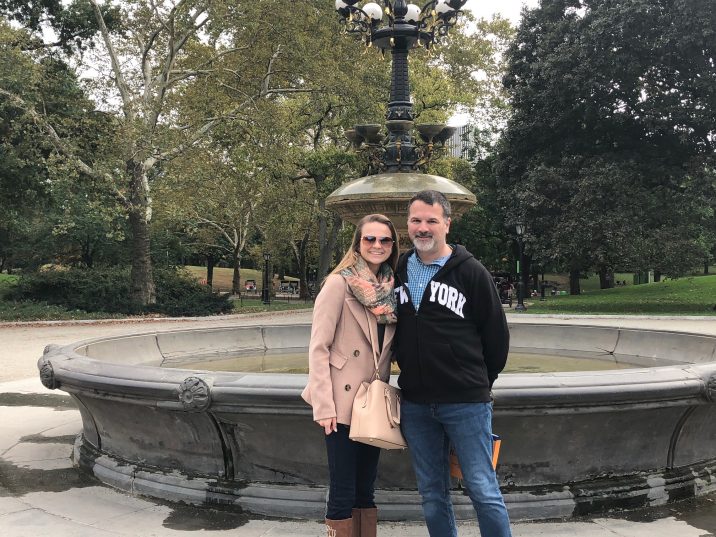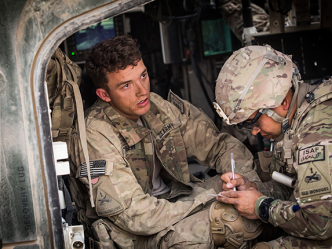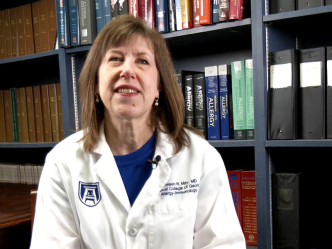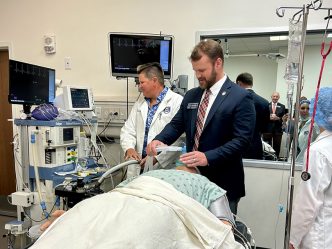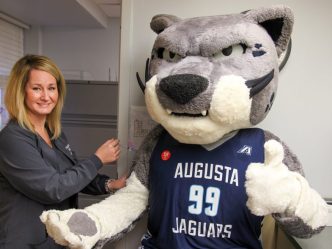It was the summer of 2016 when 17-year-old Taylor Tywon started experiencing migraines, fatigue and nosebleeds.
Her father, a physician assistant, checked her out and all seemed normal. But Tywon’s symptoms worsened. After a year, she had nose bleeds several times a day, along with constant, severe headaches, which made it very difficult to follow her normal routine and focus on her high school classes.
Tywon’s family sought out a local ear, nose and throat specialist who thought she had a simple fungal nasal polyp: a painless, noncancerous growth.
However, when a sample was analyzed, the growth causing her symptoms was determined to b esthesioneuroblastoma, an extremely rare tumor of the nasal cavity.
The Valdosta, Georgia, resident and her family were referred to another Georgia hospital, where the doctor suggested surgery to remove the tumor, which would leave Tywon missing parts of her nose and cheek, and possibly her left eye.
In shock and seeking other options, they eventually met with Dr. Kenneth Byrd, a Head and Neck Oncologic surgeon in the Medical College of Georgia’s Department of Otolaryngology (ENT) at Augusta University.
“This was the third surgeon we had seen, but he was the only one who said he wouldn’t take her eye out,” said Tywon’s father, Shawn Tywon.
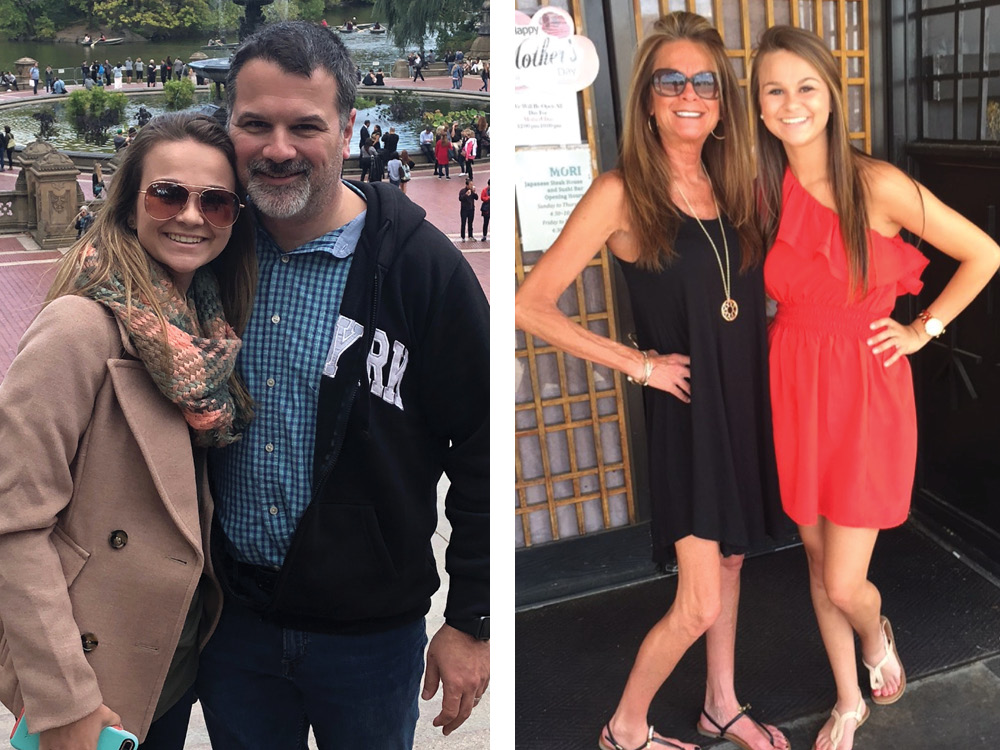
Another way to a cure
Byrd recommended a relatively new procedure, endoscopic skull base surgery, a minimally invasive procedure in which a tube-like endoscope and surgical instruments are inserted through the nose, minimizing disfiguration, incisions and disruption of the bony surface at the base of the brain.
Dr. C. Arturo Solares, who left AU Health in 2016, was the first in Georgia to perform the surgery more than 10 years ago. The Skull Base Surgery Center at Augusta University remains the only one of its kind in the Augusta, Georgia area.
Byrd, who began practicing at AU Health in 2016 after a two-year fellowship on Advanced Head and Neck Oncologic Surgery and Skull Base Surgery at the University of Pittsburgh Medical Center, said endoscopic skull base surgery offers patients a lot of benefits over traditional options.
“Historically, you have to make a big incision, remove significant bone from the facial skeleton, then sew them up and they end up with a big incision on their face. Sometimes they even need a craniotomy and have to retract the brain to get the tumor out,” said Byrd. “For select people, endoscopic skull base surgery avoids a lot of the incisions, retractions and disruption, and it’s a more direct route to areas of the base of the skull and brain.”
Byrd also said recovery is faster. A traditional procedure would require one or two weeks in the hospital with a larger potential for complications. With endoscopic skull base surgery, recovery usually only takes a few days.
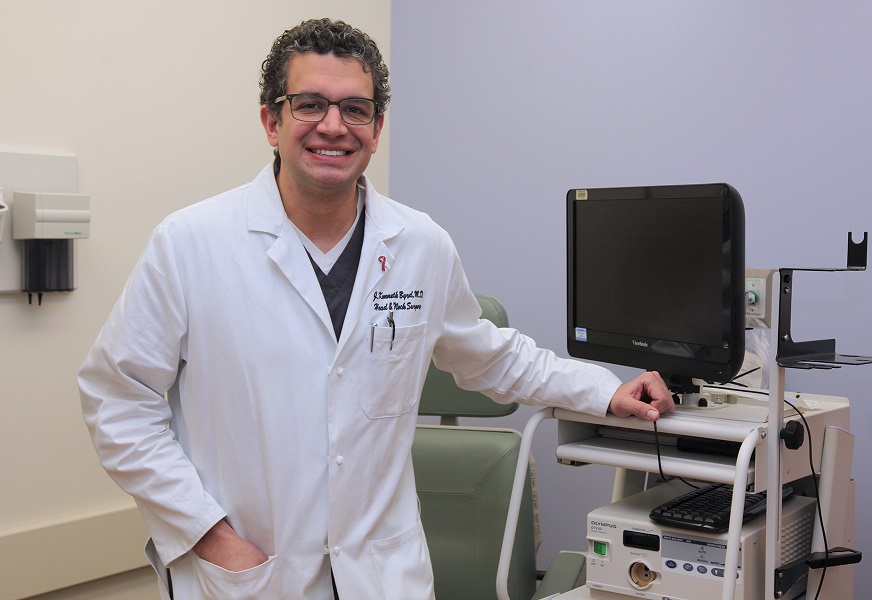
This procedure evolved from endoscopic sinus surgery, which removes blockages in the sinuses, into a technique that uses an endoscope on pituitary surgery.
“We go in with an endoscope [with a camera attached] and put it on a monitor so you can see in HD and you can open up the sinuses very precisely,” said Byrd.
Skull base surgery can be used to remove cysts, growths, trigeminal neuralgia (a chronic pain condition which affects the trigeminal nerve), arteriovenous malformations (a tangle of abnormal blood vessels connecting arteries and veins in the brain) and cerebral aneurysms (a weakening of the wall of an artery in the brain which can result in abnormal widening or a rupture), among other conditions. It’s a surgery that’s performed by a relatively low number of physicians, according to the North American Skull Base Society.
Tywon’s father has nothing but praise for Byrd and his team.
“He was amazing,” Shawn Tywon said. “She liked him best because of the way he talked and explained and said what he would and wouldn’t do.”
Tywon added, “He explained it in depth, so I understood it. “
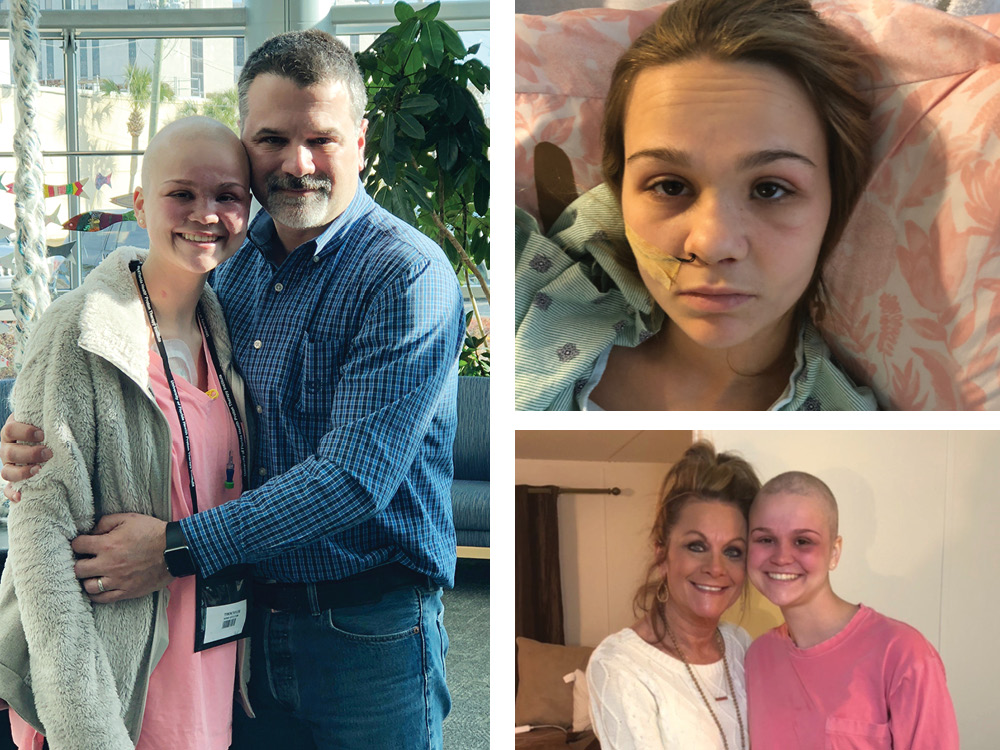
The road to cancer-free
Tywon’s surgery, which took place in October of 2017, was pretty extensive: “They had to shave off bone through her nose. He got the entire tumor out,” said Shawn Tywon. “It was the size of a golf ball.”
The recovery time went by quickly, as promised, lasting less than three weeks.
“Once they took out the packing, she felt great,” Shawn Tywon said.
Still, recovery wasn’t without its challenges. After surgery, Tywon needed reconstructive work on her nose. She continued her radiation and chemo treatments over the next year.
The radiation caused her to lose some of her vision, but Tywon toughed it out, describing the side effects as “nothing too extreme.” Over time, she was able to recover her vision, but is still unable to smell.
Tywon follows up every three months with MRIs. She has been cancer-free with no reoccurrence for the past year and a half.
Less than two years after the surgery, Tywon said, “I’m starting to feel better. I can get out and do stuff now.”
She thought for a time that her life would be forever changed due to her tumor. But now, thanks to this procedure, she is well on her way to living the life of a normal 20-year-old. Tywon says she plans to pursue medicine, just like her father. She is considering a career as a nurse anesthetist and is also holding out hope that she can serve in the military, despite the recent cancer. In the more immediate future, though, she would like to try one of the most thrilling experiences life has to offer: skydiving.
 Augusta University
Augusta University
